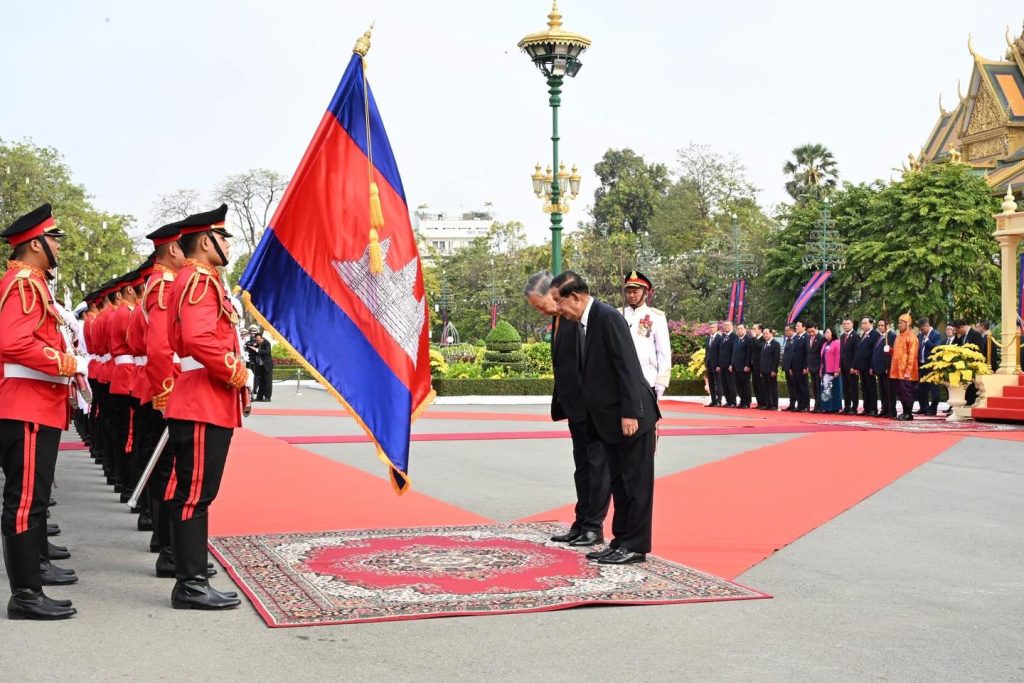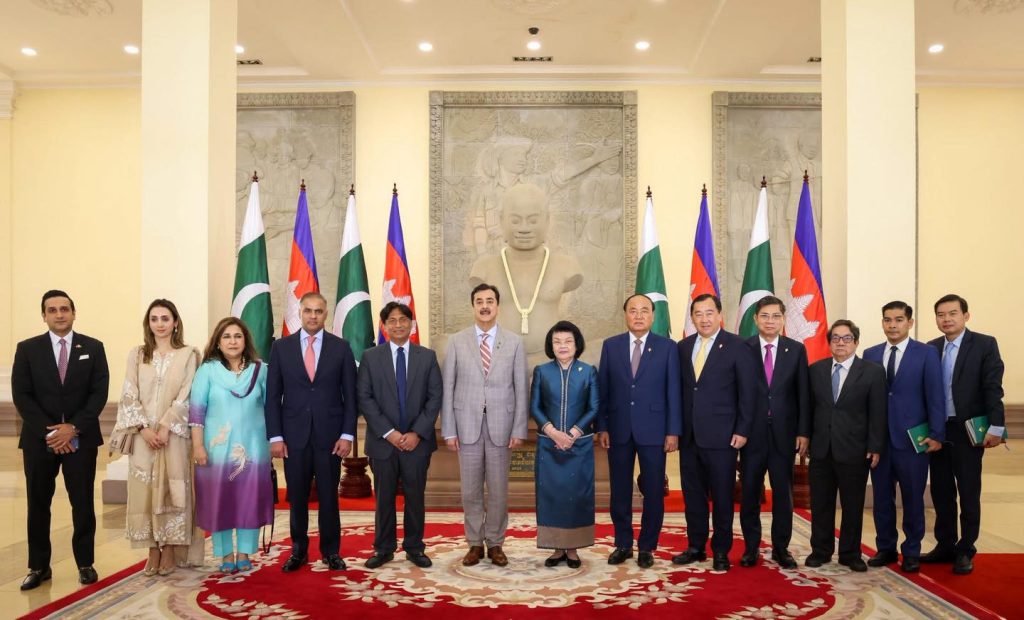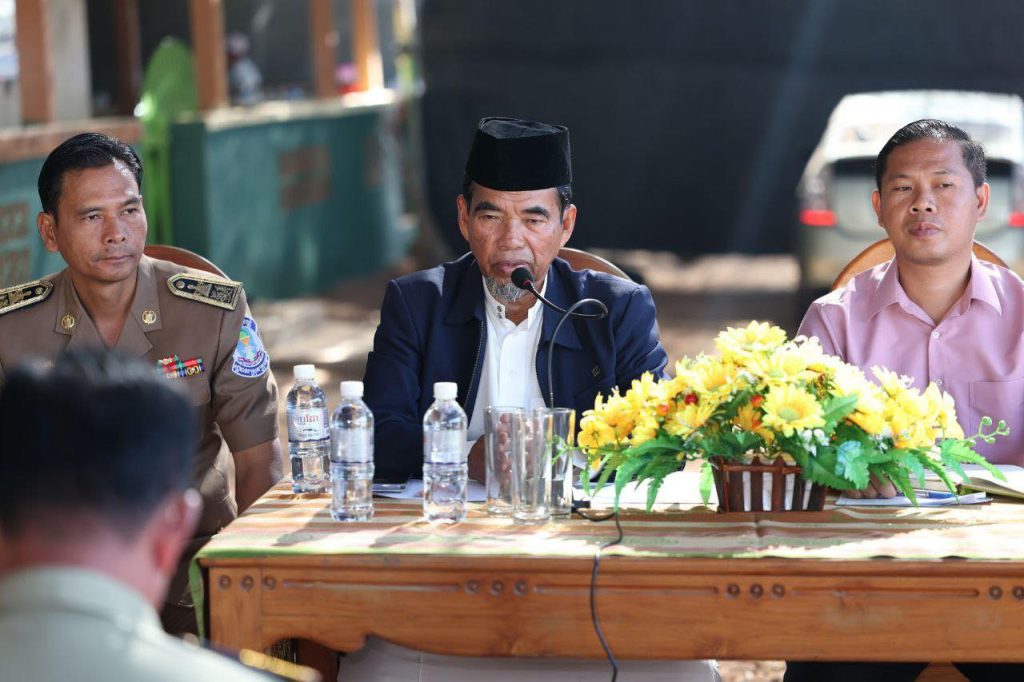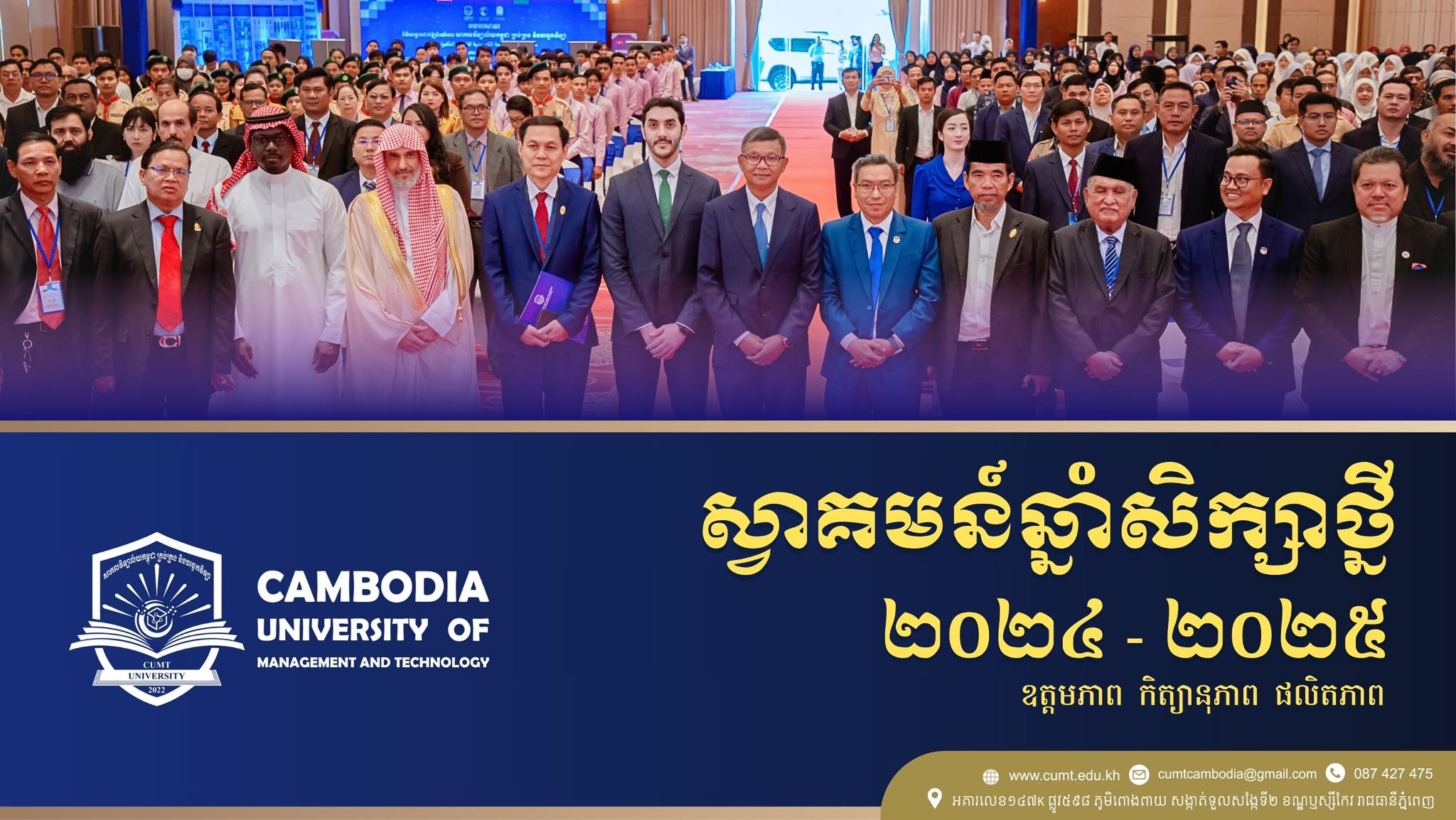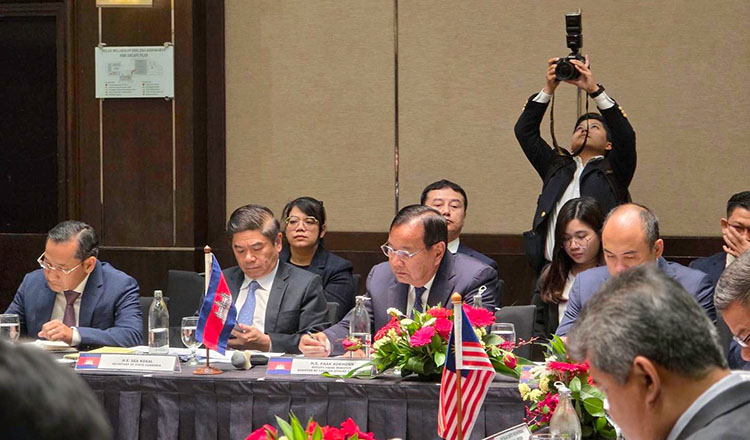
Cambodia and Thailand to ink accord at ASEAN Summit to end border conflict, says minister


Synopsis: Southeast Asian neighbours are expected to sign a US- and Malaysia-mediated peace agreement later this month, paving the way to the restoration of diplomatic ties, release of detained soldiers, and an end of hostilities.
Cambodia and Thailand are set to sign a US- and Malaysia-brokered peace agreement at the ASEAN Summit later this month, marking a major step toward restoring diplomatic relations and ending months of border tension.
Speaking to TVK upon his arrival at Techo International Airport on Saturday, Foreign Affairs and International Cooperation Minister Prak Sokhonn said he was in Kuala Lumpur on Friday to represent Cambodia in a four-party consultation meeting with Malaysia, the US, and Thailand. The meeting, he said, led to a satisfactory result.
“We held discussions until nighttime and eventually agreed upon a document which we expect to be signed by the prime ministers of both countries (Cambodia and Thailand) on the sidelines of the ASEAN Summit. The signing will be witnessed by the US President, His Excellency Donald Trump, and His Excellency Anwar Ibrahim, Prime Minister of Malaysia and the host of the meeting,” Sokhonn said.
The minister added that the “peace agreement” will be the foundation for the two countries to restore normalcy in their diplomatic and people-to-people relations.
“It would be the beginning of a journey toward peaceful collaboration and existence between the two neighbours as well as create opportunities for peace and prosperity for each nation.
Sokhonn said the agreement will reinforce both countries’ commitment to upholding the ceasefire and respect for each other’s sovereignty and territorial integrity.
“The document outlines essential tasks we must accomplish to rebuild trust and normalcy between our nations,” he said. “They include working together to restore diplomatic relations after both countries have downgraded their respective diplomatic missions to the level of second secretary and further cooperation to combat online scams, demining at the border areas and the withdrawal of weaponry from the border areas to defuse tension in the border areas.”
The minister stated that the Thai side, upon the signing of the peace agreement, will release “without delay” the 18 Cambodian soldiers who were captured shortly after the ceasefire agreement came into effect.
“There are several other measures in the agreement, including the peaceful settlement of the border issue and the respect for the non-use of force principle to resolve disputes,” Sokhonn said. “We renewed our commitment, as permanent neighbours, to joint responsibility to restore normalcy between the two nations for the sake of the prosperity of the two peoples.”
Sokhonn admitted that Friday’s talks were “a tough negotiation” but said the skilful coordination of Malaysia and the US helped the conflicting parties settle their differences.
“No one values peace more than Cambodia because we have gone through years of civil wars,” he said. “Cambodia considered peace the precious asset for our country, and we are absolutely committed to this negotiation.”

Speaking on behalf of the Cambodia and its people, Sokhonn expressed his gratitude to the US and Malaysia for coordinating the meeting. He also thanked China, stressing that the ceasefire would not have been possible without help from the Chinese government.
Prime Minister Hun Manet yesterday issued a strong statement addressing concerns raised on social media regarding the ceasefire and the upcoming peace accord.
In a post shared on his official channels, Mr Hun Manet denied claims that the agreements compromised Cambodia’s sovereignty or territorial integrity.
He clarified that the ceasefire agreement signed on July 28 outlines operational conditions and codes of conduct aimed solely at preventing renewed hostilities. The forthcoming peace agreement, he added, will focus on creating a favourable environment to end conflict and restore diplomatic relations between nations.
Mr Hun Manet added that neither agreement contains provisions related to land or border issues.
He said no party is expected to relinquish its lawful rights over sovereign territory. Matters concerning land demarcation and border markers, he said, remain under the jurisdiction of the Cambodia-Thailand Joint Boundary Commission and will be resolved peacefully in accordance with existing treaties and bilateral agreements.
He assured the people that Cambodia has not agreed to any deal—past or future—that would result in the loss of its sovereignty or territorial integrity.
The Cambodian government, Sokhonn said, remains fully committed to defending the nation’s sovereign rights and territorial unity.
Thailand’s Foreign Affairs Ministry on Friday confirmed that its newly appointed Minister Sihasak Phuangketkeow attended the four-party meeting but did not give details of the meeting or the agreement.
“The Thai side emphasised the importance of making concrete progress on issues of withdrawal of heavy weaponry, joint demining efforts, combating transnational crime, and cooperation on management of border areas,” the ministry said on X.
Earlier this month, US President Donald Trump sent a letter to Thai Prime Minister Anutin Charnvirakul expressing a desire to see Thailand and Cambodia reach a peaceful resolution to their simmering border feud.
However, Anutin insisted that any renewed peace talks must align with Thailand’s strict conditions, including the withdrawal of Cambodian heavy weapons from border areas, removal of landmines, relocation of Cambodian nationals from areas Thailand considers its own, and a crackdown on online scam operations allegedly run from Cambodian territory.
“Thailand is always ready for dialogue once these conditions are fully met,” Anutin said while speaking to the press on October 10.
“We are neighbours, after all, while the mediator is on another continent. If President Trump can help persuade Cambodia to comply with these terms, it would be welcome—it would ensure Thailand faces no further encroachments.”
International Relations Institute Director-General Kin Phea said it is ideal for Cambodia and Thailand to sign a peace treaty before an influential third party because “a bilateral agreement will never work for this dispute”, no thanks to Thailand being a far bigger and more powerful country than Cambodia.
He suggested that a monitoring body be created after the signing of the agreement.
“I believe that the effectiveness of the upcoming peace agreement in ending the tension depends heavily on how willing Thailand is to respect it,” he said.
“As such, the peace agreement has to integrate a special mechanism to monitor (its) implementation.”KhmerTime


